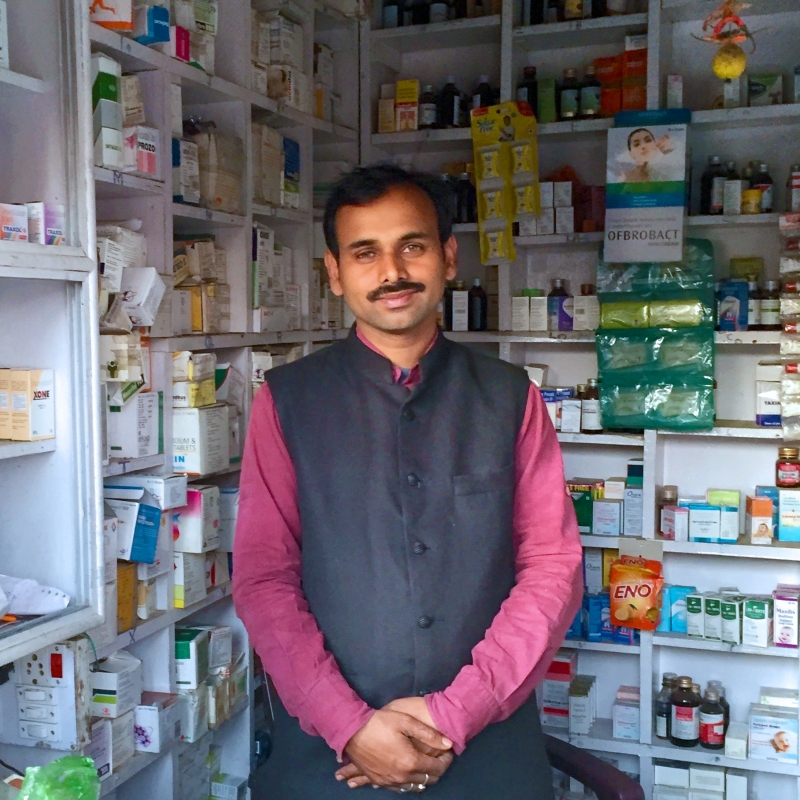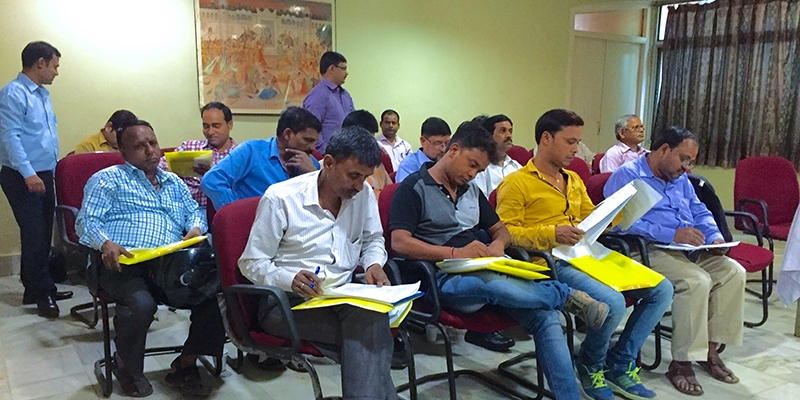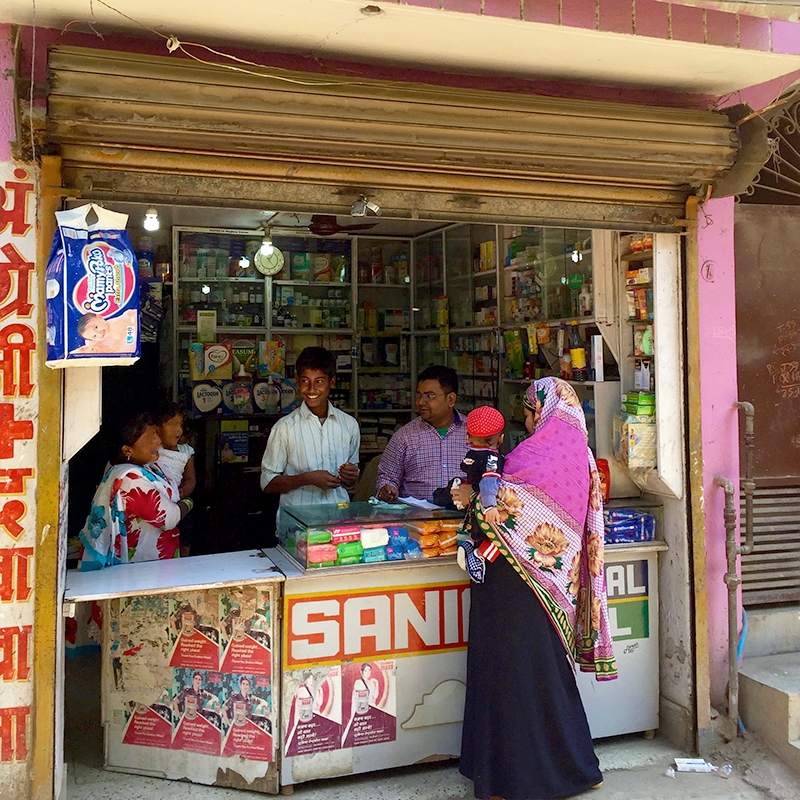Tuberculosis is a curable and preventable disease but continues to affect over 9 million people worldwide, and causes 1.5 million deaths every year.
Dr. Madhukar Pai and and Dr. Amrita Daftary of McGill University (Canada) and Dr. Nita Jha of World Health Partners (India) are developing new methods and techniques to better engage community pharmacists in order to improve early detection and provide effective treatment for tuberculosis.
 Tuberculosis in India
Tuberculosis in IndiaWith 2.2 million people infected with TB in India alone, this public health problem is considered the world’s largest tuberculosis epidemic. Strategies are urgently needed to find undiagnosed cases and connect them to the appropriate medical care, and halt ongoing community transmission
Pharmacies are the first point of contact for many undiagnosed patients, and serve as optimum entry- points to screening services. “Currently, many private providers and hospitals do not notify TB cases to the government, despite TB being made a notifiable disease in 2012,” Dr. Pai notes in a recent post.
The research team are using an intervention strategy that engages community-based pharmacists and utilizes e-health technology to achieve early TB case detection. Their plan is to recruit 105 pharmacies in three stages to educate pharmacy providers in early TB case detection and promote referrals of TB symptomatic patients for chest radiograph and/or doctor consultation. Engaging pharmacy providers could help shorten the diagnostic pathway for tuberculosis and enhance early case detection.
 Building Capacity for Pharmacists
Building Capacity for PharmacistsThe project is first being implemented Patna, Bihar, one of India’s poorest states. The research team have recruited 105 pharmacies in three areas of Patna and are training them to triage patients with a cough or suspicious tuberculosis symptoms and send patients to a screening and referral service immediately. Patients then will have access to free digital chest X-rays and other services. To combat incentives received from prescribing over-the-counter medicine, pharmacists are also being incentivized by the research team at similar rates: $1 for a doctor referral, $2 for a chest X-ray referral, and $4 for a TB case notification.
The team have also used e-Health technologies to engage and educate pharmacy providers. SMS text messages and state-of-the-art ICT platforms are being used to help facilitate e-referrals and expedite TB screening/diagnostic services.
Participating pharmacists have found the intervention to be highly effective and note that their credibility and trust with patients in the community have been improved.
 Improving Healthcare in Communities
Improving Healthcare in CommunitiesDr. Daftary notes that the “TB program has taken a lot of innovative steps to enhance TB care and control, to reduce the incidences and prevalence of TB, and to treat people that are diagnosed with TB in a standardized fashion.”
This unique community engagement strategy has already proven to create significant change, having drastically reduced time between detection and primary treatment for patients from 60 days to under 6 days.
In Canada, tuberculosis remains a major health problem in the Aboriginal population and novel initiatives are urgently needed to mitigate the impact of the disease.
Further Reading:
2024 IC-IMPACTS Conference in Delhi December 9 - 11, 2024 New Delhi, India